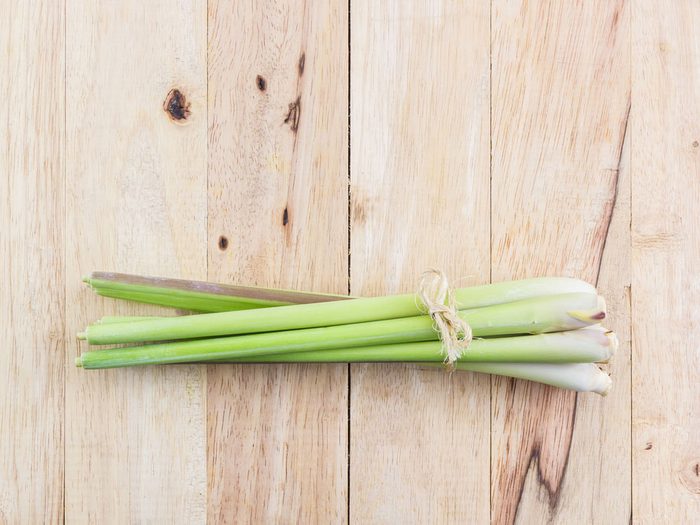
The health benefits of lemongrass
Blueberries, broccoli, salmon, kale, kefir and goji berries better listen up. There’s a new superfood in town: Lemongrass. While you may know the plant food as a mainstay ingredient in Thai food, it’s also a powerhouse food for cleanses and detoxes. But that’s not to say lemongrass should only be eaten when you’re ordering at a Thai restaurant or looking to drop weight quickly – lemongrass has quite a few healthy benefits. Not only is it a plant food that is low in calories and other bad-for-you things like fat, cholesterol and sodium, it’s also a very good source of manganese (which may help prevent bone loss). With the help of Vancouver-based dietitian and Dietitians Canada spokesperson Winnie Hung, owner of Health Quartet, we share a few more reasons you should be cooking with lemongrass.
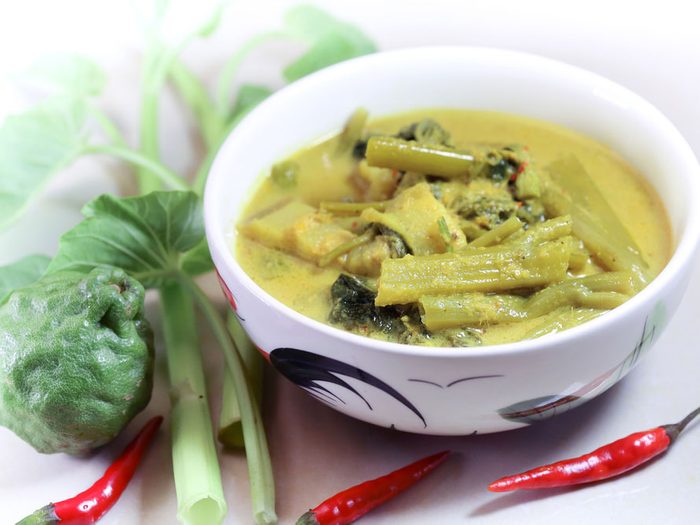
Ease pain
While you won’t likely stop taking ibuprofen or acetaminophen for muscle and joint pain and headaches, the anti-inflammatory effects of lemongrass could reduce pain sensitivity.
“Based on the previous studies on mice, Citronellol, the compound found in C. Citratus oil – one of the lemongrass species – has been shown to ease pain through reducing the sensitive of painful stimuli and that may be the reason why pains like headache, abdominal pain or stomach ache are managed,” says Hung. “Many people use it to relieve inflammation-related pain such as joint and muscle pain because of its anti-inflammatory effect.”

Relieve PMS
Since lemongrass seems to help some people with aches and pains, it makes sense that it could help relieve signs of premenstrual syndrome, such as headaches and cramping.
“Researchers have also shown that the oil extracted from lemongrass helps to relax muscle,” says Hung, “which explains why some common PMS symptoms like headache, joint and muscle pain and cramping pain can be managed [with lemongrass.]”

Inhibit infections
Lemongrass repels bugs (thanks to your stash of citronella candles), but it also fends off bacteria and may prevent a developing infection. Hung tells us: “Studies do show that the components found in lemongrass leaves have antibacterial and antifungal effect.” And, lemongrass oil is shown to be potent against some antibiotic-resistance bacteria, shows research from the Asian Pacific Journal of Tropical Medicine.
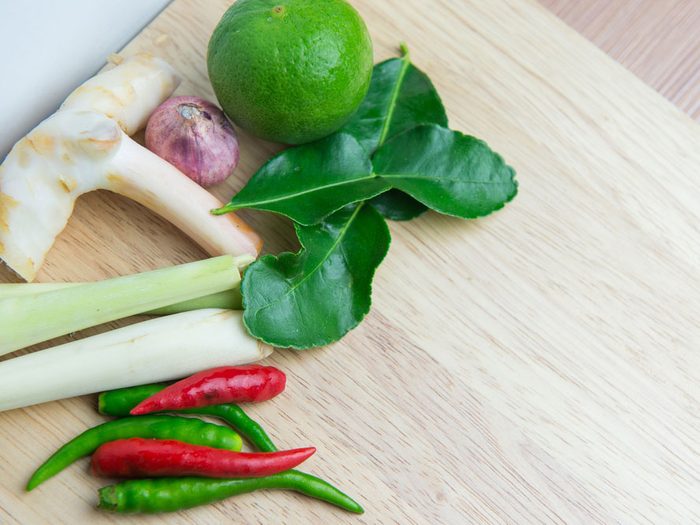
Fight free radicals
Free radical damage is something your body deals with every day, from the sun to stress hormones. Pesticides, junk food, smoking, alcohol, pollution, and other habits that are bad for our health also cause it. But in some situations, free radicals can cause changes in cells that can lead to premature aging or even cancer. “Lemongrass is rich in antioxidants, which may be able to protect the cells in our body from free radical damage,” says Hung.
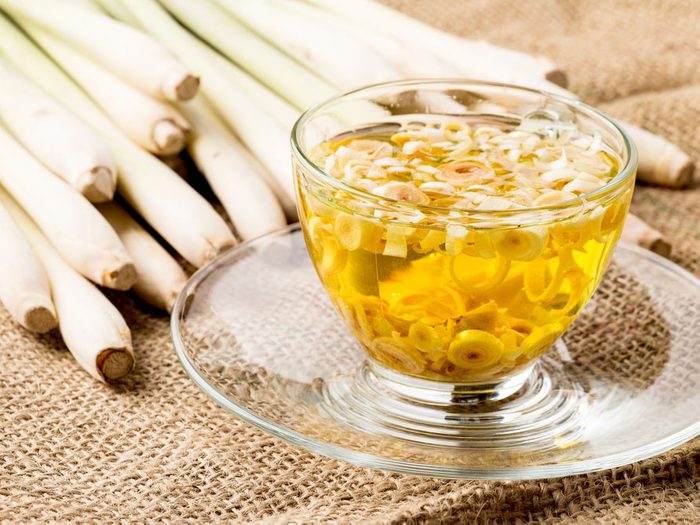
Boost your immune system
Lemongrass is a good food option to incorporate your diet, says Hung. Since it’s a healthy antioxidant-rich food with anti-inflammatory properties, it supports your body and boosts your immune system. But Hung adds: “There are many different foods that can help boost the immune system.” She recommends a diet rich in a variety of colourful fruits and vegetables for optimal health.
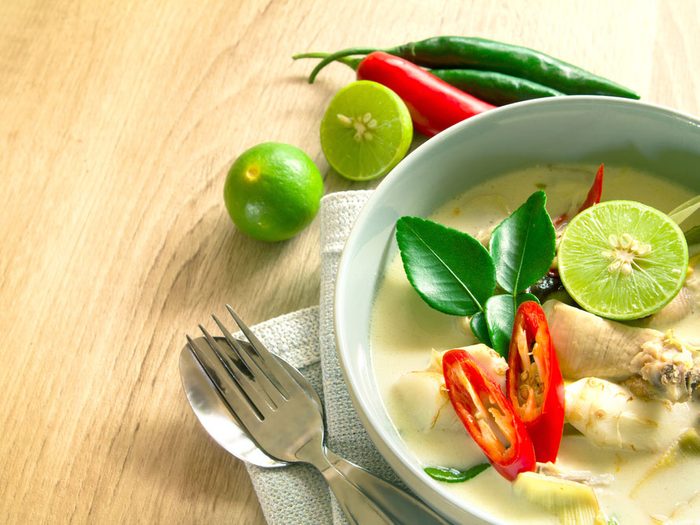
It’s so good for you… as part of a balanced diet
In addition to easing pain, relieving PMS, inhibiting infections, fighting free radicals and boosting your immune system, some research also suggests that lemongrass can help with depression, as well as blood glucose and cholesterol levels. Hung says that while there is no doubt that lemongrass offers multiple benefits to our health, many of these studies are animal-based or use components of lemongrass, as opposed to the whole food. And: “Lemongrass may have interactions with some medications like chemotherapeutic agents.” So talk to your healthcare provider before using lemongrass oil therapeutically, especially if you’re pregnant.
How to cook with lemongrass
Lemongrass is a superstar ingredient that you can use in soup, tea, rice, curry or even part of a chicken dish. How you enjoy it is up to you, says Hung. “Have a cup of lemongrass tea between meals, or have lemongrass soup when you get PMS systems. Lemongrass curry may stimulate your appetite with the flavour.” Lemongrass is often used in savoury recipes, adds Hung, such as in chicken and fish marinades, as well as sweet treats, like cheesecake, soufflés and puddings.
